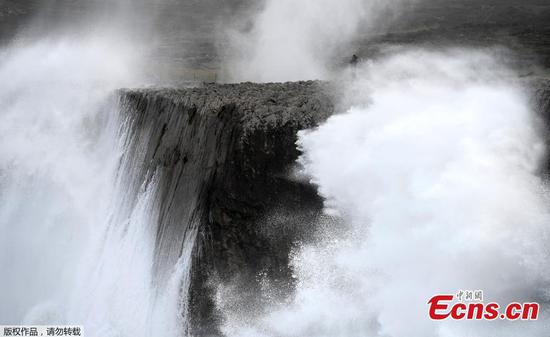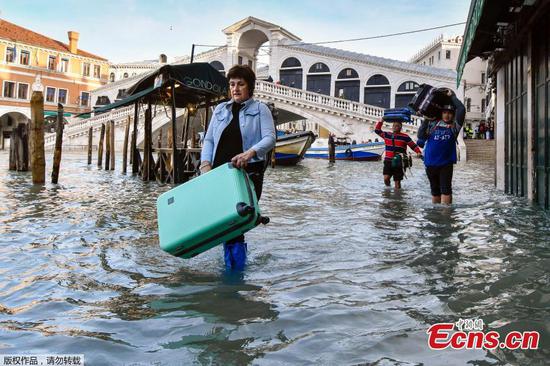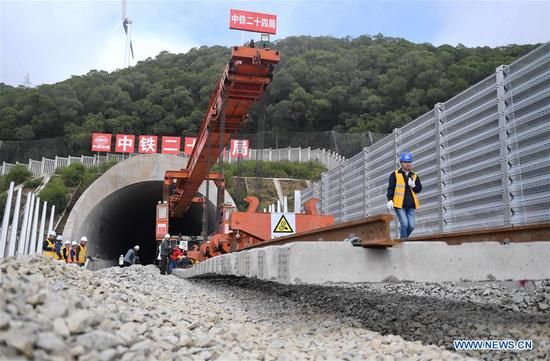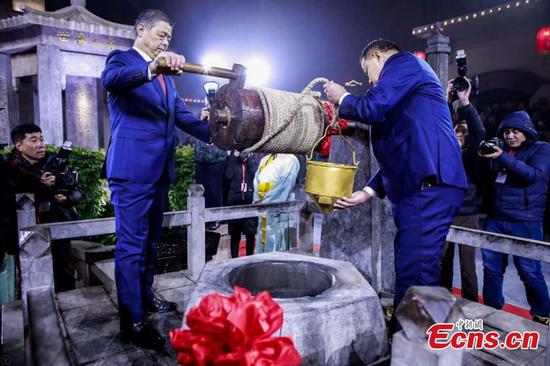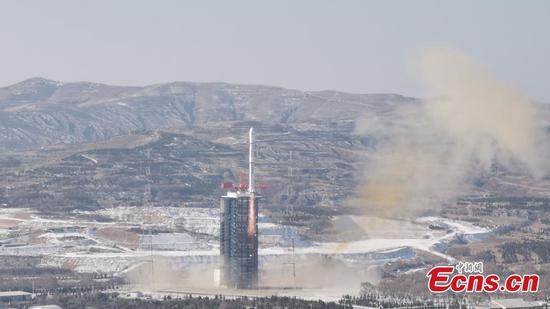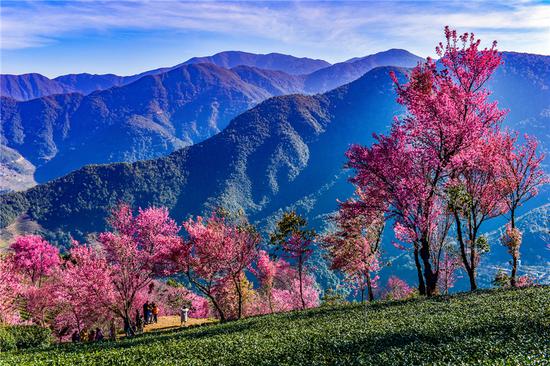
A fishing boat is hoisted for destruction in Luzhou, a city by the Yangtze River in Sichuan province, on Dec 19, 2019. Sichuan aims to eliminate all fishing activities in the Yangtze River basin in the province by the end of the year. (Photo by HE HAIYANG/FOR CHINA DAILY)
Chinese lawmakers on Monday started deliberating a draft law aimed at protecting the ecology of the Yangtze River basin and facilitating green development.
The draft for the protection of the Yangtze clarifies the geographic scope of the law's application and the responsibilities of different government departments, and unifies rules for the river's resources.
The draft, China's first legislation on a specific river basin, was submitted to the Standing Committee of the National People's Congress, China's top legislature, for first review on Monday.
If approved, it will be adopted in 19 provincial-level regions along the Yangtze River, including Hubei, Hunan, Sichuan, Guangdong, Shanghai and Chongqing.
The State Council, China's cabinet, will coordinate, command and supervise protection work carried out by different provinces and regions along the Yangtze. This work will involve joint enforcement, setting up standards of monitoring and assessment.
The draft also strengthens governance of land and water use of and along the Yangtze.
For example, chemical plant construction will be forbidden within 1 kilometer of the river's shoreline. In addition, heavy-polluting industries will not be allowed to move to the upper and middle reaches of the river.
President Xi Jinping stressed the role of green development in boosting the economic growth of the Yangtze River Economic Belt during a meeting in Chongqing in 2016.
Last April, at a symposium promoting the development of the economic belt in Wuhan, capital of Hubei province, Xi again called for achieving high-quality economic growth through developing the belt.
Gao Hucheng, head of the Environmental Protection and Resources Conservation Committee of the National People's Congress, which is heading the drafting work, said that the law is the first of its kind to specifically protect a river in the country because the Yangtze, the nation's longest waterway, is facing pollution challenges and becoming "sick".
"Due to some improper economic activities along the Yangtze, the number of some rare and endangered species has decreased sharply, and soil and major reservoirs have been polluted," he said.
"Also, the water level of Dongting Lake and Poyang Lake, tributaries of the river, have hit their lows more frequently in recent years," he added. "So now we should put restoring the ecological environment of the river at a dominant position."












